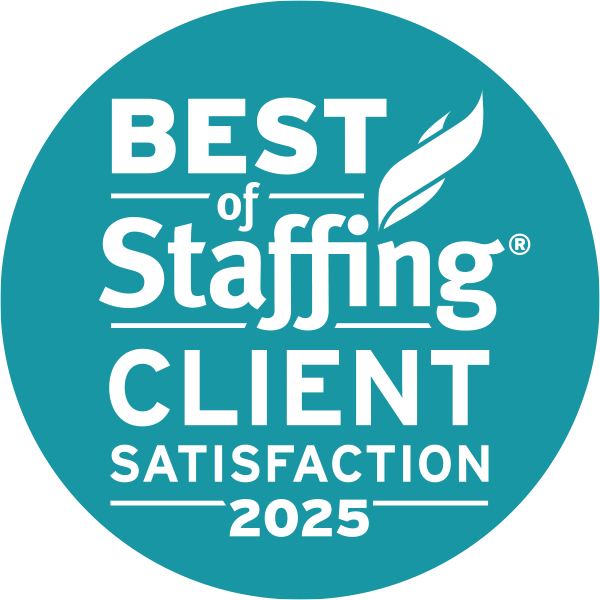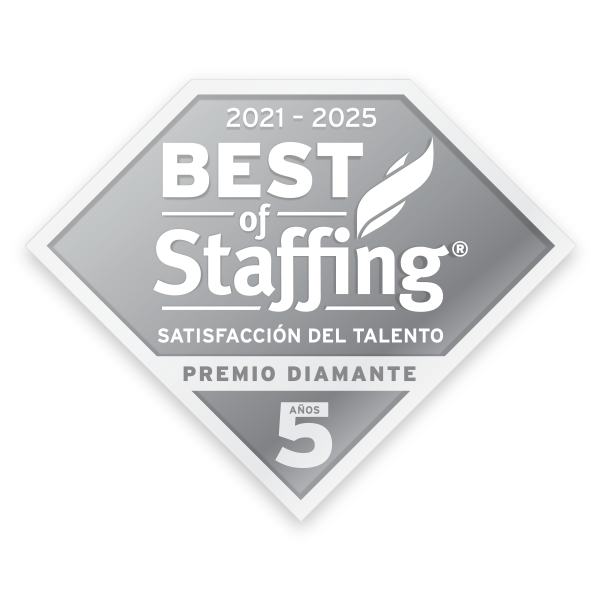
Strong leadership is the driving force behind high performance. Across industries, experienced executives shape effective marketing strategies, inspire sales growth, and empower success in every function. Yet, hiring full-time leaders isn’t always the most sensible option.
Based on Onward Search poll data, more than 1 in 4 companies are exploring a novel alternative: fractional executives. From CMOs to CSOs and beyond, these senior-level experts offer part-time and as-needed leadership services. Their approach minimizes expenses while maximizing agility, specialization and innovation.
More than a mere trend, it’s a proven solution for modern teams and growing organizations. This Fractional Executive Hiring Guide dives deeper into the model, detailing the key advantages, engagement process, and more. Explore everything you need to know about hiring fractional executives and propel your specialized initiatives forward.
- Fractional Executives Explained | What are they?
- Benefits of Fractional Executives | Why should you hire them?
- Hiring Fractional Executives | How does it work?
- Fractional Executive Interview Questions | What should you ask?
- Pricing Fractional Executives | How much does it cost?
Fractional Executives Explained | What are they?
Fractional executives can fill a wide range of part-time leadership roles within your organization. Their flexible model allows you to access top-tier talent without the long-term commitment or cost of a full-time hire.
Unlike permanent and interim leaders, fractional executives often work with multiple clients simultaneously, devoting different hours to different projects and initiatives. However, they can provide both strategic guidance and hands-on management. These leaders embed themselves within your organization, balancing fresh perspectives with an in-depth understanding of your strategic objectives.
This allows them to quickly diagnose challenges, implement effective strategies, and mentor in-house teams. And by focusing primarily on the areas you need most, they help deliver accelerated growth and improved performance in short timeframes.
Benefits of Fractional Executives | Why should you hire them?
There isn’t just one reason to engage fractional executives; there are many. While the definition above touches on a few of the advantages of the approach, here’s a breakdown of the key benefits in a bit more detail.
- Specialized Leadership Expertise: You can access extensive experience, unbiased perspectives, and niche skills. Fractional executives expand your leadership team’s capabilities and offer strategic insights tailored to the unique needs and challenges of your business.
- Increased Executive Bandwidth: You free up your existing leadership team’s time by having a fractional executive handle the areas they otherwise could not. This allows you and your executives to focus on your core business without being overwhelmed.
- Lower Employer Risk: You mitigate the risks and complexities of traditional recruitment. As your provider acts as the employer-of-record, they’re responsible and liable for following employment laws and regulations. Plus, you avoid the gamble of committing to the wrong permanent hire.
- Faster Time-to-Hire: You streamline the process of finding, onboarding and utilizing an executive. Fractional leaders not only enable you to access the support you need quicker than traditional hiring methods; they also accelerate performance by fixing problems fast.
- Flexibility & Scalability: You can scale your fractional executive’s involvement up and down based on your evolving needs. This allows you to ramp up marketing efforts during growth phases or streamline operations during lean periods, adjusting as demands change.
- Executive Hiring Cost Savings: You avoid expenses like recruitment, benefits, and onboarding costs. Plus, fractional executives can cost over 60% less than of full-time ones, and they allow you to allocate resources better. Overall, they’re a more affordable option for businesses with budget constraints.
Hiring Fractional Executives | How does it work?
First, you work with a staffing or talent solutions provider to define the position. Generally, a member of their team meets with you to discuss your executive needs, required skill sets, and concept of cultural fit. They answer your questions, make recommendations, and guide you forward.
Then, they find and present pre-vetted candidates from their network. You’ll have the chance to interview and select your favorite candidates. If you’re unsure about your options, your provider will typically present you with more.
Once you commit to a fractional executive, the provider helps you onboard and integrate them into your team. Then, they continue to check back in to make sure your hire is leading your team to succeed. Plus, the provider employs the executive. So, you never need to deal with the complicated administrative HR work of hiring senior leaders.
Fractional Executive Interviews | What should you ask?
While your provider will pre-vet your candidates for you, it’s important to be thorough in your interviews, nonetheless. When interviewing fractional executives, you need to evaluate more than each candidate’s background experience and past performance.
To succeed, interviewers must assess both the hard skills necessary for the specific position and the soft skills required for any fractional role, such as adaptability and collaboration.
These are a few examples of questions that should help you gain an understanding of any fractional executive candidate’s general capabilities and fit. However, they should be tailored to your company, and combined with questions that are more particular to your opening.
- Do you have leadership experience in a company that’s a comparable size to ours?
- What industries have you primarily worked in, and how do they compare to ours?
- How involved are you typically in overseeing implementation compared to strategic planning?
- What’s an example of a complex problem you solved and the steps you took to address it?
- What tools and methodologies do you plan to use in this role?
- How would you measure your success?
- What’s the biggest challenge you typically face?
- Can you describe a time when you did not achieve the expected results and how you handled it?
- How do you manage the transition between different organizations and roles?
- What’s your approach to integrating yourself into a company’s team and processes?
- What’s your approach to dealing with resistance from permanent staff?
- How do you prioritize tasks and projects to maximize impact in a limited timeframe?
Pricing Fractional Executives | How much do they cost?
As described above, the overall costs are typically lower than traditional hiring, and savings are a key benefit of the service. However, specific fractional executive rates depend on the leadership role, its responsibilities, the needed experience, and the leader’s geographic location.
You can also work with your provider to determine the optimal billing cycle for your unique needs, as options vary between agreements. If beneficial, fractional executives can even work on a retainer basis, guaranteeing a number of hours or days per a set period of time, and enabling predictability.
Example fractional executive roles include:
| Example Title | Description |
|---|---|
| Chief Creative Officer (CCO) | Leads the creative vision and strategy, overseeing creative teams (designers, copywriters, etc.), ensuring brand alignment across all creative outputs (marketing, product design, etc.) |
| Chief Finance Officer (CFO) | Manages the financial health of the company, overseeing financial reporting, budgeting, forecasting, and risk management |
| Chief Information Officer (CIO) | Leads the information technology (IT) department, responsible for IT infrastructure, systems development, and data security |
| Chief Information Security Officer (CISO) | Focuses solely on information security, implementing strategies to protect company data and systems from cyber threats |
| Chief Marketing Officer (CMO) | Develops and executes marketing strategies, responsible for brand awareness, lead generation, and customer acquisition |
| Chief Operating Officer (COO) | Oversees day-to-day operations, managing departments like production, logistics, and customer service |
| Chief Product Officer (CPO) | Leads the product development lifecycle, responsible for product strategy, design, development, and launch |
| Chief Revenue Officer (CRO) | Drives the company's revenue growth, overseeing sales, marketing, and customer success teams |
If you’re interested in learning more about fractional executives and cost-effective talent solutions, download our free ‘Hiring on a Budget’ guide.
Start hiring smart.
Whether you’re looking for a CMO, a CSO, or a different leader entirely – you don’t need to add headcount to engage experts. Follow the guidance in this Fractional Executive Hiring Guide, leverage our solutions, and exceed your revenue goals.
Request a Fractional Executive
Tell us what you need, and we’ll be in touch to support you within 24 hours.







